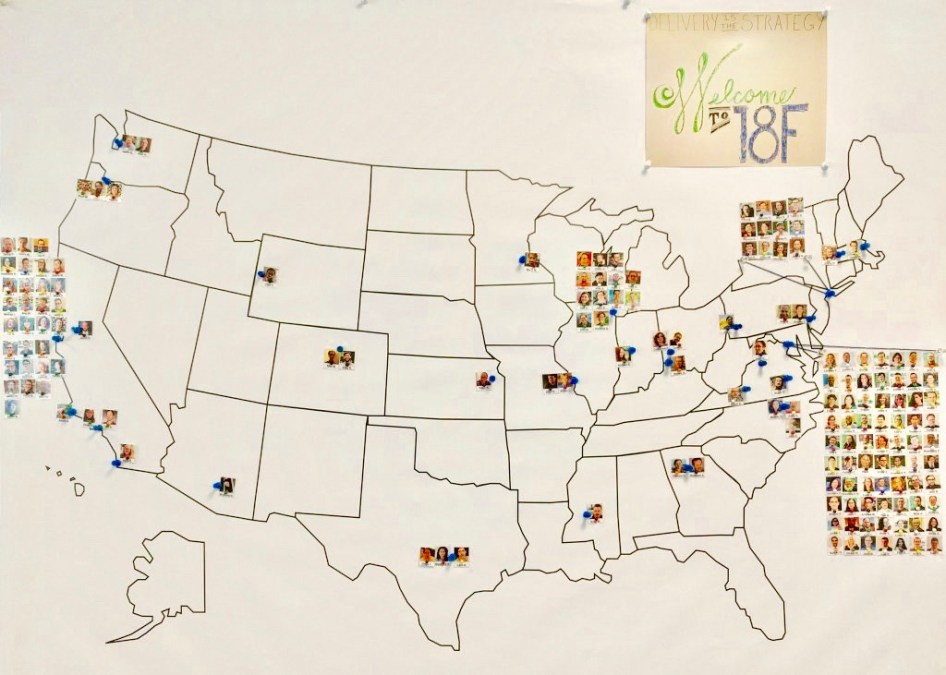Stay or go? 18F and USDS insiders debate what it means to be in public service

On Nov. 9, 2016, Noah Kunin published a short Medium post explaining his decision to stay at 18F regardless of the results of the election. The rationale? The government startup was beyond politics. “My oath to this country was not to a particular office, or person, and certainly not to a political party. It was to the Constitution and to the people,” he wrote at the time.
Now, eight months later, Kunin has changed his tune. He’s leaving 18F.
Kunin’s personal evolution on the subject provides insight into how politics intrude into a nominally apolitical realm. The post-election tension was probably inevitable: Dozens of young liberal technologists were drawn early to 18F and to another Obama-era creation, the U.S. Digital Service and its corresponding agency arms.
‘The straw that broke my personal back’
For Kunin, three and a half years as an infrastructure director at 18F were brought to a halt by a line in former FBI Director James Comey’s testimony about President Donald Trump asking for Comey’s “loyalty.” This paired with the reorganization of GSA’s Technology Transformation Service under the Federal Acquisition Service — an organization controlled by a political appointee — led Kunin to worry that Trump might soon ask for loyalty from other public servants as well.
Loyalty to a specific leader, Kunin argues, undermines democracy. And though he hasn’t been asked for his loyalty directly, working with Trump’s administration means tacitly legitimizing its actions, he says.
Kunin’s argument stands in opposition to another popular opinion: The best way to work with the Trump administration is to show up and make divergent perspectives heard. That was the gist of the Washington Post op-ed Code For America founder Jennifer Pahlka published before her visit to the White House for Trump’s “tech week.”
It’s also an argument, Kunin says, that he has made before. “If the government is on fire, and you want to put that fire out,” he writes, “you have to run toward the fire. Not away from it.” But Kunin is no longer convinced this is an ordinary fire situation.
Think about a grease fire. Putting out a fire like that doesn’t work by running in and throwing water on it. That only spreads the fire around. To put out an oil fire, you have to suffocate it of the oxygen it needs to burn. In our democracy, that oxygen is “consent to power”. Individuals, corporations, organizations need to think hard and long about this, before working with or for this Administration in any capacity.
A philosophical question
Kunin told Business Insider that the aim of his Medium post, besides revealing his own decision, is to remind his fellow public servants to evaluate their position.
“I don’t think that would be a fair take that it’s a broad call for mass resignation from the public service,” Kunin said. “The post is a call for public servants to ask the question of complicity of themselves, and the nature of their work. This is not a ‘one size fits all’ solution.”
Kunin’s tenure at 18F — about the length of one presidential term — is fairly typical for people drawn to doing a “tour of duty” in public service. Most 18F employees serve in “not to exceed” positions which means they serve for a term of two years, extendable to a total of four years. As such, various 18F and USDS officials departed recently with this kind of length of service on their resumes.
They generally left quietly. Kunin, instead, chose to use the opportunity to start a conversation, and there was an audience for it. Vivian Graubard, a founding member of USDS who is now at the New America think tank, tweeted her agreement with his perspective:
https://twitter.com/vivigraubard/status/882679462504140800
Chris Cairns, a cofounder of 18F now out in the private sector, also understands where Kunin is coming from. “I share his concern about the potential politicization of 18F, regardless of administration,” he wrote in an email to FedScoop. “It only makes sense to be in the room so long as your voice is being heard.” Cairns left last month after about four years at 18F.
Chris Given, who works for USDS at the Department of Veterans Affairs, responded to Kunin’s post with a series of tweets explaining why he’s still on the inside. “I stay because 1) I know my work improves people’s lives, and 2) I have not been asked, directly or in kind, for my personal loyalty,” he tweeted. That said, he wrote, he spends time thinking about how he’d respond to an unethical ask. “My eyes are open. I start days knowing that I might have to quit before their end. I don’t relish that possibility, but I am ready.”
Aaron Snow, another 18F cofounder, is concerned about throwing the baby out with the bathwater. “I think being there [at 18F] remains important,” he said. “The federal government is a vast enterprise and there are many ways to provide public service in its employ, regardless of whether the president agrees with you.”
Snow, who also finished a four-year stretch and is no longer part of the government, reiterated his respect for Kunin and others who may decide to leave public service early. But being able to leave a job based on a philosophical difference of opinion is a position of privilege, he cautioned. The federal government employs millions of Americans — people who continue dispersing Social Security checks and implementing tax policy and maintaining federal buildings regardless of the president in charge. It’s how the government works.
Should 18F employees be any different? At the end of the day these decisions are personal, and based on individual circumstance, Snow said.
“Everybody,” he said, “has to draw their own lines.”






